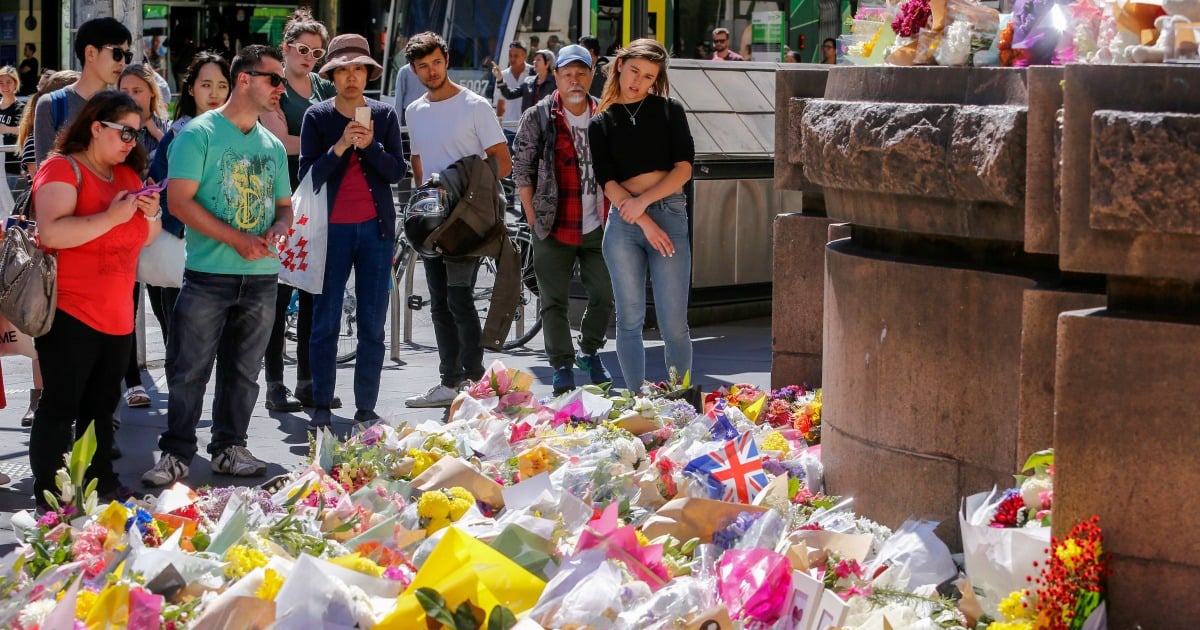As a city and a country tries to come to terms with the senseless, violent act of someone who deliberately drove into pedestrians on Bourke Street last Friday, those closest to the incident are asking themselves one resounding question:
Why didn’t I do more?
Five people were killed by the driver of the red Holden Commodore on Friday afternoon, among them a three-month-old boy, a 10-year-old girl, a 33-year-old father and a 22-year-old woman described as a “bright bubble of joy” by those who knew her. An estimated 37 people were injured, with some still in critical condition. In the days since, police have collected dozens of statements, from people who saw a man recklessly driving the vehicle in the vicinity of Bourke Street, and others who witnessed the moments he mounted the street and sped into innocent men, women and children who happened to be there.
Tributes in the form of letters and flowers have mounted in Federation Square; a manifestation of the grief felt by an entire community.
“I’m sorry I was so useless and I froze and didn’t help,” reads one card, alongside a bunch of white flowers.
Another stand-alone card reads, “I wish I could have helped more.”
I wish I could have helped more.
I froze.
I was useless.
These are exceedingly common reactions to witnessing a traumatic event. The bystander effect - the social phenomenon whereby individuals don't offer help to a victim when other people are present - has been an area of study since the 1960s. Psychologists say this happens for several reasons, including uncertainty about the seriousness of the event, perceived differences between the victim and a potential helper, and diffusion of responsibility.


Top Comments
Thank-you, I really needed to hear (read) this right now.
I really think that hindsight is 20/20 and no one could have stopped this guy from doing what he did, not even the Police. Few people would have been experienced in that sort of mayhem, most of us here in Australia just live our lives without ever seeing such violence and tragedy. Plus, to me, it sounds like many of the bystanders were amazing in how they helped in the aftermath. Many people of Melbourne showed true Aussie mateship and should be proud.